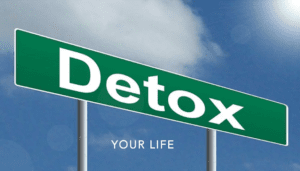When a parent first brings their child to me with a diagnosis of ADHD, learning difficulties or behavioural challenges it can sometime be hard to know where to start. There have been so many environmental, lifestyle, and biochemical contributors identified from nutritional deficiencies, dietary triggers like food sensitivities and additives, heavy metal burden, poor sleep, stress, gut imbalances and more.

Diet, stress and sleep are some very key places I start and are so important to providing a solid foundation from which we can build further. From there I will look at their gut health and as well low levels of key nutrients like iron, zinc, magnesium and essential fatty acids to name a few common culprits. In many of my clients I find these changes alone provide a huge improvement in symptoms.
In those that seem to need more support, the next steps are usually to investigate heavy metals or environmental drivers (such as mould, fungi or allergens), to look into the possibility of pyrroles or methylation imbalances or to invest in deeper gut testing if symptoms indicate the need.
There are some amazing herbs and brain nutrients with some strong evidence in supporting cognition. One of these is Bacopa, a herb with a long history of being used to improve memory. Coupled with it’s historical use, there are clinical trials supporting its safe use in children to improve cognition, behaviour and attention deficit domains while also reducing restlessness and impulsivity. All desired outcomes in those struggling with ADHD symptoms I’m sure you agree. I love this herb for children as it also has adaptogenic, neuroprotective, antioxidant and anti-inflammatory effects, and so offers a much broader range of benefits outside of its direct cognitive impact.
Another herb I will consider is Ginkgo. While many think of this as a memory aid and circulatory support herb in aging populations, it is not uncommonly used in children from 3 years old (with studies confirming safety in this population). I find Ginkgo supportive in part due to its circulatory effects; improving blood flow, oxygenation and nutrition to the brain and peripheries. It’s also an antioxidant, anti-inflammatory, protects mitochondrial function (the little powerhouses within our cells) and supports nerve transmission.
Another less known brain nutrient is phosphatidylserine – a major phospholipid in brain tissue. While it’s name may be fancy and complicated, this clinically proven nutrient has demonstrated some very straightforward (yet profound) benefits:
- Improved memory and sharp thinking
- Enhanced concentration, vocabulary skills and learning
- Support other cognitive abilities and short-term auditing memory
- Benefits ADHD- improved attention, behaviour, learning performance and mood
- Has been used alongside Ritalin and was shown to further improve the degree of functioning
- In adolescents it improved memory, and reduced perceived exam-related stress
The naturopathic approach to ADHD is supportive, restorative and gentle. It requires a combination of strengthening the child’s foundation of a good diet, adequate nutrition, quality sleep and a supportive environment. This combined with addressing individual drivers pertinent to the child and if required additional tools such as herbs and nutrients with targeted actions. It’s not a quick fix, with herbs like Bacopa often requiring a few months treatment to see its full effects, yet with care, persistence and the right support profound changes can be seen.
Share the love

About Sandi
Sandi Cooper is an experienced Naturopath working in clinical practice for almost two decades. Her clients love her down-to-earth approach and her naturally caring qualities. Although Sandi is experienced in most areas of clinical practice, she has a special interest in children’s health and nutrition, working with parents to get the best outcomes for their children.






